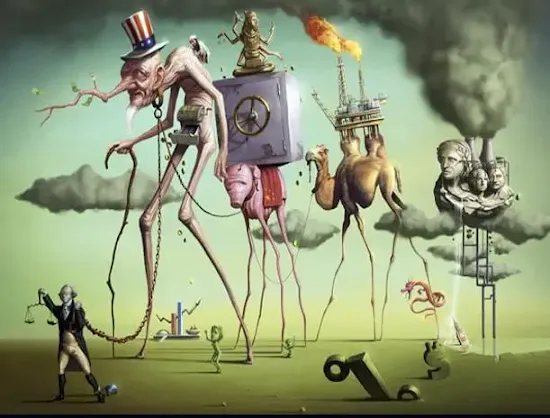In a world where powers emerge as beacons of freedom, democracy, and well-being, arises a confounding enigma: how has an entity that once epitomized these ideals morphed into a symbol of decay and perversion?
History has shown us the rise and fall of empires, but the contemporary case defies all logic. How is it possible that a nation that once radiated light upon democracy and human rights is now engulfed in shadows of corruption and inequality?
The paradox deepens further when considering the role of public perception. How can a society reconcile the idealized image of its nation with the harsh reality of its moral and political decay?
Perhaps the answer lies in the dialectic between the concepts of power and responsibility. As a power grows in influence, does its commitment to the fundamental values that led it to the top wane? Or is it human nature itself that succumbs to the temptation of absolute power?
The reflection leads us to question our own beliefs and actions. Are we also prone to losing sight of our principles in pursuit of success and domination? Or can we resist the current of decay, holding steadfast to our values even in moments of greatest temptation?
Ultimately, the enigma of a power's transformation challenges us to critically examine not only the nation in question but also ourselves and our relationship with power, morality, and responsibility. In an increasingly complex world, this philosophical reflection reminds us that the pursuit of truth and integrity is a constant journey, a perpetual struggle against the current of decay and perversion.












0 Comentarios